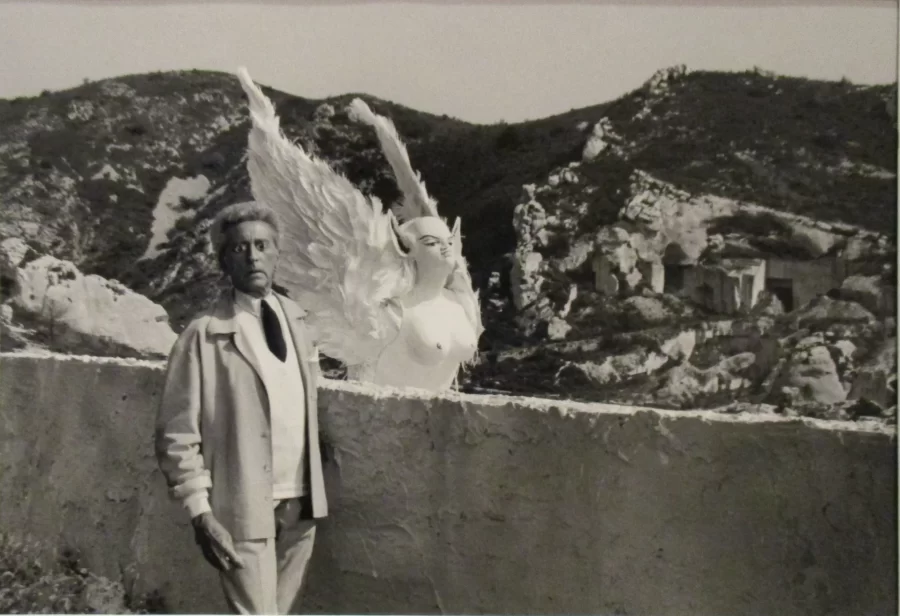Jean Cocteau (French, 1889-1963)
As a poet, playwright, novelist, filmmaker, and designer, Cocteau was an avant-garde artist in various media and integral in the Dada and Surrealist movements. Through artistic creation, he believed in “placing those objects of the visible world which have become invisible due to the glue of habit in an unusual position which strikes the soul and gives them a tragic force.” In his work, he often mixed classical myths with personal experiences.
Born to a Parisian bourgeois family, Cocteau was around art from an early age and took immense interest in the theatricality and skill of the touring Ballets Russes. After WWI, he became immersed in the burgeoning arts scene in Paris, with his play Orphée (1926) helping to renew the form of tragedy in contemporary theatre. Notable films by Cocteau include le Sang d’un poète (1930), La Belle et la Bête (1946), and Orphée (1949). Seen in Lucien Clergue’s photograph titled Jean Cocteau and the Sphinx, Cocteau stands behind a mountainous background with the prop in the middle of shooting the final film of his career, Le testament d’Orphée.


